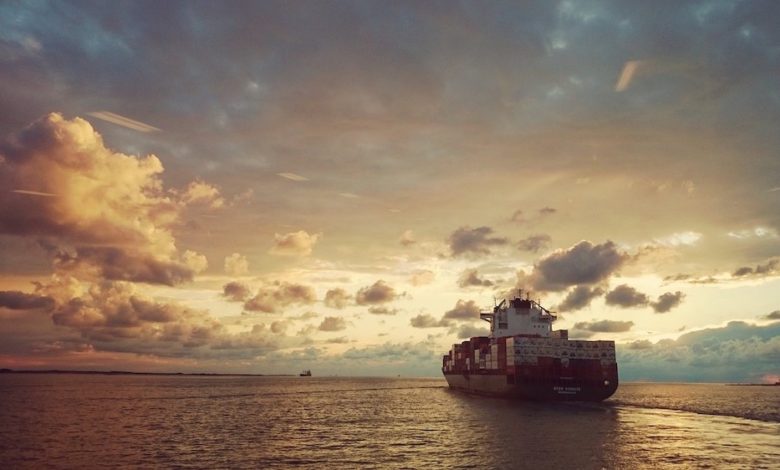Time to listen to the ocean

Steven Jones on the urgent need for the oceans to be embraced during the upcoming COP28.
As global leaders ready themselves for the forthcoming United Nations (UN) climate conference in Dubai, the urgency to prioritise both the climate challenges and potential contributions of our oceans is intensifying.
Despite covering over two-thirds of the planet and absorbing significant amounts of greenhouse gases and heat, definitive policies and financing for ocean-based initiatives remain lacking. However, ahead of COP28, a growing consensus is placing oceans at the heart of climate action, emphasising the requirement for tangible commitment, financial support, and official mandates to harness the ocean’s vast potential in aiding the achievement of Paris Agreement goals.
Giving a United Nations seat to international waters would help to address the lack of action
Modern ocean governance stems from the concept of freedom of the seas – the principle that oceans are a common resource for navigation, trade, and use. This open-seas doctrine is codified in the UN Convention on the Law of the Sea (UNCLOS), which has limitations in protecting the marine environment.
While UNCLOS is integral to ocean governance, there are issues when it comes to addressing environmental challenges and it fails to provide a formal voice for the oceans themselves. This impedes progress toward sustainability goals, even when leaders express their intent to prioritise ocean health.
Without governance reforms, the oceans remain marginalised, but questions remain as to how this can be best managed. In 2015 Admiral Sir James Burnell-Nugent, formally Commander-in-Chief Fleet of the Royal Navy, and then speaking in his role as senior fellow at US-based project Oceans Beyond Piracy, voiced the opinion that the “high seas” should be given a seat at the UN to help to deal with issues such as piracy, overfishing and exploration/exploitation outside national waters.
Burnell-Nugent said, “What’s missing in my view is international waters don’t have a seat at the UN,” he said. “The land — 25 per cent of the planet — is well represented on the UN, but the 75 per cent of the planet which is covered in water is not represented at all. There’s no voice to represent the concerns of international waters and there are many”. Adding, “Giving a United Nations seat to international waters would help to address the lack of action”.
Could such a vision be the missing piece of the jigsaw? Could a symbolic UN seat for the oceans drive positive change? It certainly raises several intriguing possibilities, not least that in recognising the oceans as a separate entity at the UN it could prioritise the urgent need for comprehensive and coordinated efforts to address marine pollution, overfishing, habitat destruction, and climate change impacts.
Such recognition could also elevate ocean conservation to a global priority and would tie in well with UN Sustainability Goals. With such a voice, ocean management and resource allocation could be approached with a long-term perspective, ensuring that these resources are sustainably utilised. It could also contribute to the broader conversation about the rights and representation and the ethical treatment and protection of the natural world.
A “UN:Ocean” could unite nations to fulfil shared commitments and invest in marine solutions. By advancing policy, science, and public awareness. Driving collaboration on conservation, climate adaptation, pollution reduction, and biodiversity protection.
Elevating oceans in the dialogue could also raise public awareness about the importance of marine ecosystems in supporting life on Earth. This could foster education and advocacy for ocean conservation and may also lead to a sense of greater global responsibility.
While there is seemingly much that could be gained, such a move would be complex and would require careful consideration of legal, political, and logistical challenges. Change is not easy, and balancing the needs of human populations, economic activities, and environmental preservation would be critical. However, the potential benefits could lead to innovative solutions and a reframing of past arguments. It is, then, a question which needs to be asked.
The oceans are at the front line as ecosystems rupture, marine life falters, temperatures rise, and corals bleach. Yet ignorance and inaction yield further scars. Hope lingers, and in the COP28 “Global Stocktake”, we have a call to mend our ways, to rally united by the oceans’ vitality.
It is a call that demands audacity, to think differently while committing ourselves to positive change. Our oceans give life but now face death. Our destiny is intertwined with the seas, our very existence tied to a tide now fast on the ebb, a truth we must grasp as we must rethink all the ways and means of what has gone before. As a start, listening to the oceans does not seem such a bad idea.

Steven Jones makes a good point. I have been saying for a while that we cannot have the freedom of the seas and at the same time try to control what people do to the climate of the only planet available to us. Admiral Burrell-Nugent’s idea of giving the oceans a representation at the IMO is quite a clever one because it doesn’t expressly repudiate the idea of “Mare Liberum” which we have had since 1609 and which is codified into UNCLOS.
Making it work in practice would be hard. Not necessarily impossible, and certainly very desirable.
It is indeed time to listen to the oceans!